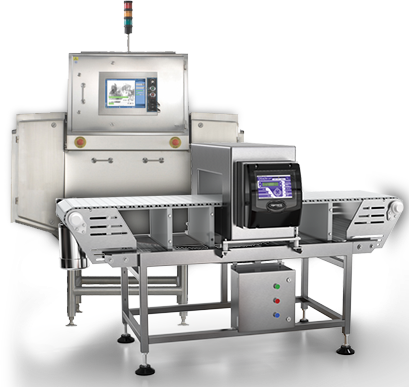 The FDA Food Safety Modernization Act, or FSMA, is a large-scale reform of the USA’s food safety laws that was signed into law on January 4, 2011 that is designed to create new standards for food safety practices. As stated on the FDA’s website, the FSMA “gives [the] FDA new mandates, authorities and oversight tools aimed at providing solid assurances that those practices are being carried out by the food industry on a consistent, on-going basis.”
The FDA Food Safety Modernization Act, or FSMA, is a large-scale reform of the USA’s food safety laws that was signed into law on January 4, 2011 that is designed to create new standards for food safety practices. As stated on the FDA’s website, the FSMA “gives [the] FDA new mandates, authorities and oversight tools aimed at providing solid assurances that those practices are being carried out by the food industry on a consistent, on-going basis.”
So, if the FSMA was signed into law four years ago, why are we talking about it today? There are a few reasons:
- This is an important topic for anyone in the food industry.
- The FDA is taking action based on this law.
- Parts of the Act have compliances dates that are coming up (the Preventive Controls for Human Food rule and the Preventive Controls for Animal Food rule both have compliance dates that will begin in September of 2016).
Suffice to say, the topic remains relevant for any business that grows, processes, or sells food.
With this in mind, how does the FSMA affect Canadian businesses in the food industry?
Let’s start by briefly highlighting some key parts of the Act. There is a lot of text to the act as it is presented by the U.S. Government Publishing Office, more than can be reasonably presented in a single blog article.
However, here are a few of the major points in the act that can affect the way businesses in the food industry have to operate:
1: Inspection of Food Records
In the FMSA’s Title I, Section 101, there is a provision that states that:
Upon presentation of appropriate credentials and a written notice to such person, at reasonable times and within reasonable limits and in a reasonable manner, to have access to and copy all records relating to such article and any other article of food that the Secretary reasonably believes is likely to be affected in a similar manner. (FMSA Sec. 101)
In short, if the FDA has reason to believe that some of your food is contaminated in a way that poses a danger to public health, you have to furnish the FDA with a copy of all records that pertain to that food if they request it.
Furthermore, records will be required to be kept for “no less than 2 years” under the FMSA.
This means that food producers and sellers will have to be more thorough and precise in their recordkeeping for food products than what was required in the past. Thankfully, there are a number of tools available to help you improve record-keeping for production and quality control processes.
2: Implementing New Quality Assurance/Control Measures
In Section 103 of the FMSA, there is a requirement for owners and operators of businesses in the food industry to:
Evaluate the hazards that could affect food manufactured, processed, packed, or held by such facility, identify and implement preventive controls to significantly minimize or prevent the occurrence of such hazards and provide assurances that such food is not adulterated under section 402 or misbranded under section 403(w), monitor the performance of those controls, and maintain records of this monitoring as a matter of routine practice. (FMSA Sec. 103)
Basically, this is a wordy way of saying that food manufacturers will have to create and document their quality control processes for handling food product.
This probably won’t change too much for a lot of food producers, as many of these businesses have been using the HACCP (Hazard Analysis Critical Control Point) system for years. This system calls for food makers to analyze their risk factors for product contamination and document them already, so this might not be a huge adjustment.
In fact, the Act explicitly states that “nothing in the amendments made by this section limits the authority of the Secretary… to revise, issue, or enforce Hazard Analysis Critical Control programs.” So, if you had to use HACCP before, you’ll most likely still need to follow those guidelines.
3: Increased Authority for the FDA to Control Food Imports
In section 303 of the FMSA, there is a provision stating that:
With respect to an article of food, if importation of such food is subject to, but not compliant with, the requirement under subsection (q) that such food be accompanied by a certification or other assurance that the food meets applicable requirements of this Act, then such article shall be refused admission. (FMSA Sec. 303)
There are more parts to the above that also give the Secretary the power to determine if a given food should require certification in the first place based on safety risks associated with the food or its country of origin.
For companies that produce food outside of the U.S. and import it to American consumers, this has an enormous potential impact on their ability to do business. Why? Because the requirement for certification is largely left to the discretion of the FDA, it can be difficult to predict whether or not a given food product from a given country will require certification.
Compared to the whole of the document, these three points are mere snippets of the Act. However, they do highlight important points that may affect the way that businesses in the food industry operate.
It’s important that as the laws governing food production evolve and become tougher, food producers are able to keep up and meet the demand for better quality control and documentation.
Please contact the PLAN automation team to get more information.




